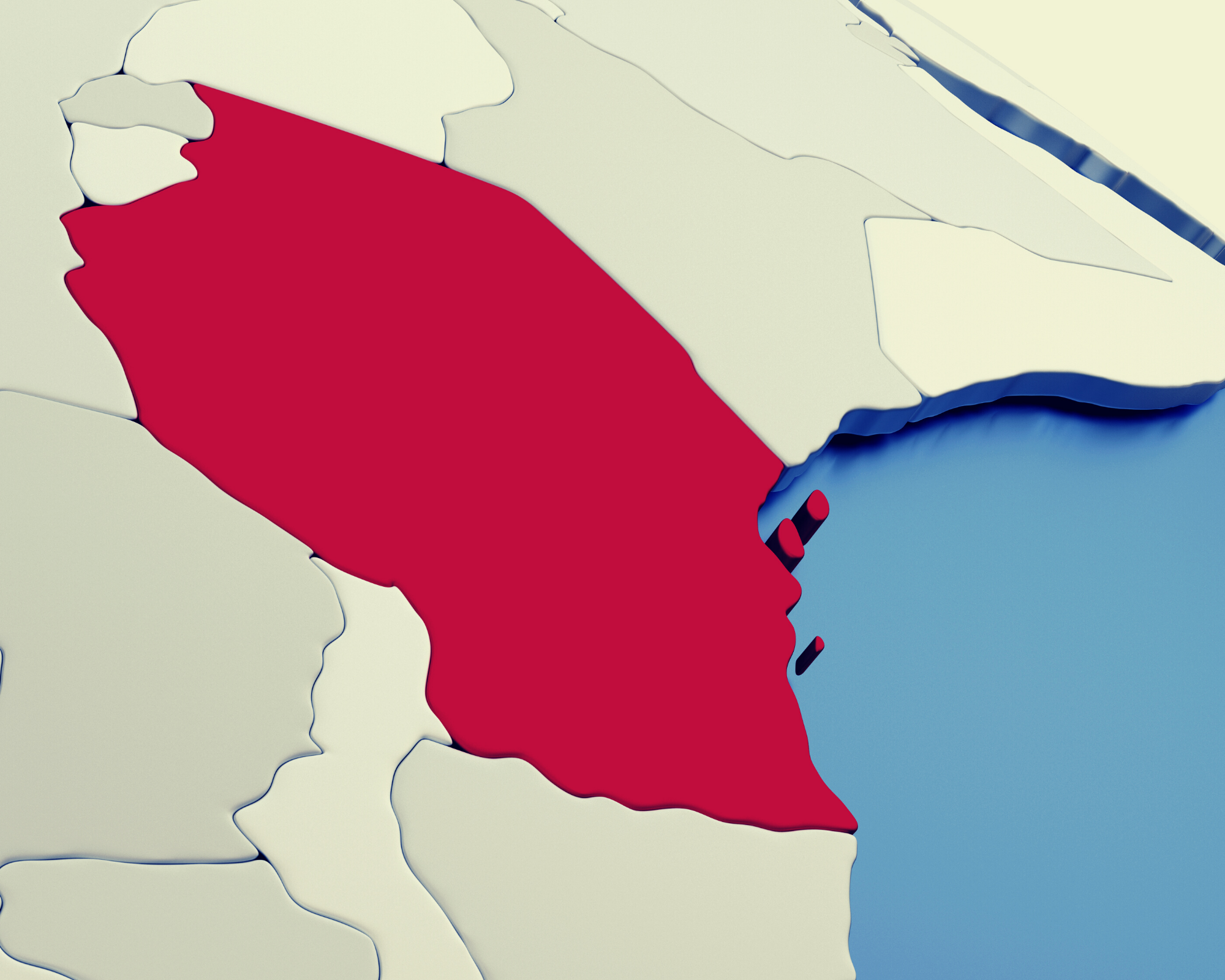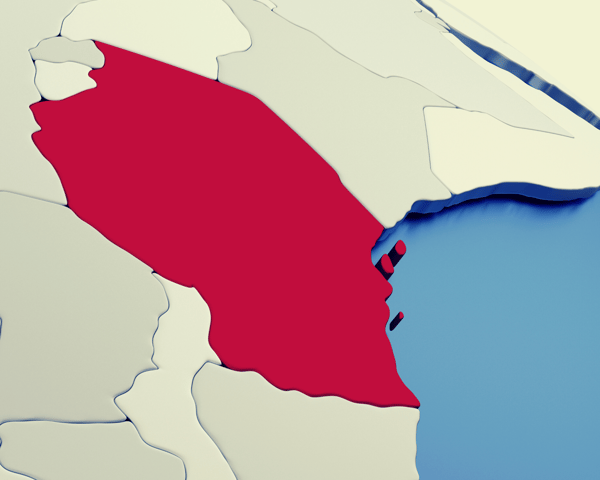
The beauty of Zanzibar – the dhows sailing out in the ocean, the narrow alleys and carved doors of Stone Town – masks the painful reality that it is one of the places in the world still stunted by the legacy of the Cold War.
In recent weeks, the world witnessed what was effectively a military invasion of the Zanzibar archipelago that began even before the first votes were cast in Tanzania’s 28 October elections.
It is Zanzibar’s fate to not only be overshadowed by events on the Tanzanian mainland, but also to be the most consistent target of security force action.

The violence on the islands was seen as secondary to the drama on the mainland, where the ruling CCM party was accused of rigging the re-election of President John Magufuli and eliminating the parliamentary opposition.
But the story needs telling in its own right because this was not the first but the sixth election in a row in which the will of the Zanzibari people was crushed by the ruling party and its security forces.
The blows against democracy in Zanzibar go back to 1995 and each successive election since.
Zanzibar’s opposition, led by Maalim Seif Hamad, fought the election this year under the purple banner of the ACT-Wazalendo party after the CCM hijacked their former political home, the Civic United Front.
Amnesty International has detailed reports of killings, arbitrary detentions and the torture of opposition members in the aftermath of the elections.
It is estimated that more than 20 people were killed in Zanzibar. One of the senior political leaders, Ismail Jussa, was beaten up while being interrogated; his right leg was broken in four places and his right shoulder in five.
Two others, Nassor Mazrui and Ayoub Bakari, disappeared for three weeks, and resurfaced last week thanks to an international campaign for their release. They have been charged with terrorism and released on bail.
There is a reason that the lid is clamped so tightly on democratic expression in Zanzibar. It is the fear that, given wings to fly, the people of the archipelago will insist on their independence and fly right out of the union.
But as long as the status quo is maintained and their aspirations continually squashed, the Zanzibaris will be no better off than if they were colonised.
Their relationship resembles that which once existed between South Africa and Namibia.
The problem goes back almost 60 years to the creation, in secret, of the United Republic of Tanzania by Julius Nyerere and Abeid Karume, the leaders of Tanganyika and Zanzibar respectively, in 1964.
On 10 December 1963, the British protectorate of Zanzibar became independent under Sultan Jamshid bin Abdullah Al Said. The colonial order remained largely intact, with Arabs owning the majority of the land and South Asians dominating commerce.
A month later, on 12 January 1964, the government was overthrown in a revolution led by Africanists and the leftist Umma Party. The sultan fled on his yacht as an unknown number of Arabs and people of South Asian descent were massacred.
President Karume governed in an uncomfortable alliance with local leftists as Soviet, Chinese and East German advisers arrived in numbers.
American president Lyndon Johnson, who was facing re-election, found these events so alarming that he sent orders to prevent a “Cuba in Africa”. The British prepared an invasion plan.
The role of the CIA in the birth of Tanzania remains murky and contested.
What is known is that CIA fixer Frank Carlucci was appointed US consul general in Zanzibar. One of Carlucci’s previous missions had been in Léopoldville (Kinshasa) when the Congolese leader Patrice Lumumba was abducted, with the knowledge and consent of the CIA, and later murdered in Katanga.
Carlucci, who went on to become Ronald Reagan’s defence secretary, admitted later that the US was actively involved in the secret pact that led to Tanzania. He said they had designed the union of Tanzania in order “for Tanganyika to swallow up Zanzibar as a way of getting rid of the communist influence in Zanzibar”.
Nyerere, who once said he would like to tow Zanzibar into the middle of the Indian Ocean, changed his mind when he opted for union. But he did not need to be manipulated by the Americans. He was no one’s puppet.

The merger fit his vision of pan-Africanism and his view that the communists a few kilometres offshore were a threat to his own rule.
Whatever the US role in cooking up the deal, the Soviet influence was wound down and Johnson claimed a minor geo-political victory.
But, like all shotgun marriages, the haste with which the union was conceived left many issues unresolved, mostly to the detriment of Zanzibar, which is where they remain to this day.
At its root is the asymmetrical nature of the union: the great elephant of Tanganyika joined with the small fish of Zanzibar does not make for holy matrimony.
Some apologists for the status quo point to another scar on Zanzibar’s history – its role in the slave trade – to justify a historical backlash against the islands.
But it is nonsense to blame the current inhabitants of Zanzibar, many of them descendants of slaves themselves, for a trade that ended 160 years ago.
Zanzibar’s main exports for centuries were vanilla, cloves, nutmeg, pepper, cinnamon and ginger, for which it was known as the Spice Islands. It was a center of the Indian Ocean trade network for more than 1,000 years, and a conduit into East Africa, thanks to the monsoon winds that blew the dhows back and forth from Arabia, Persia and India.
It was a cultural and economic centre along the Swahili coast.
But after union with Tanzania, Zanzibar went into a downward spiral.
Its status as a cosmopolitan melting pot was ended by an exodus of scholars and merchants. From being economically more developed than the mainland, the islands grew much poorer than Tanzania Bara – the Swahili name for the mainland.
There have been attempts to reinvent the relationship, notably a constitutional review commission set up by President Jakaya Kikwete in 2012 that spent three years fashioning a resolution to the “union question”.
But the ruling party’s unwillingness to cede any control sabotaged the initiative.
The irony of this paranoia about what would happen if Zanzibaris freely elected their own leaders, is that the opposition on the islands, and especially the leadership of Maalim Seif Hamad, has been the very voice of moderation. They have not argued for political sovereignty, but for a little more leeway to find their own economic destiny based on Zanzibar’s unique strengths as an island economy.
Their argument is that Zanzibar needs to look to Singapore, Hong Kong, Dubai or Mauritius for its models. Its future is as a trading and banking centre and a free economic zone astride the rising giants of East Africa.
It is for promoting this progressive vision of economic development that the leadership of Zanzibar ended up in jail or with broken bones.
It is hard to fault Maalim Seif as, with a gun to his head, he now ponders an offer that he will find hard to refuse: to be a junior partner in Zanzibar’s government of national unity led by Hussein Ali Mwinyi, the man he almost certainly beat in the election.
It is what Chadema’s presidential candidate, Tundu Lissu, calls Mafia-style politics.
Lissu, himself now exiled in Belgium, says new leaders will rise to carry on the struggle and that the rank and file will not remain quiet.
“With the democratic means for change blocked, the ruling party has opened the way for nationalists calling for independence.”
Magufuli has shattered the illusion that Zanzibar can find a just accommodation within a union created in haste at the height of the Cold War.
In doing so, the colonial nature of the relationship has been laid bare.
Source: Defend Truth
Related Posts
New naval chief, Ogalla, assumes office, pledges..
The new Chief of Naval Staff (CNS), Emmanuel Ogalla, on Friday, pledged to ensure a safer maritime..
Security takeover by NIMASA on Lagos anchorage
The situation at the anchorage in Lagos.
Obangame 2021: Nigerian Navy increases security..
The Nigerian Navy has deployed six ships, two tugboats, two helicopters and a Nigerian Airforce..




